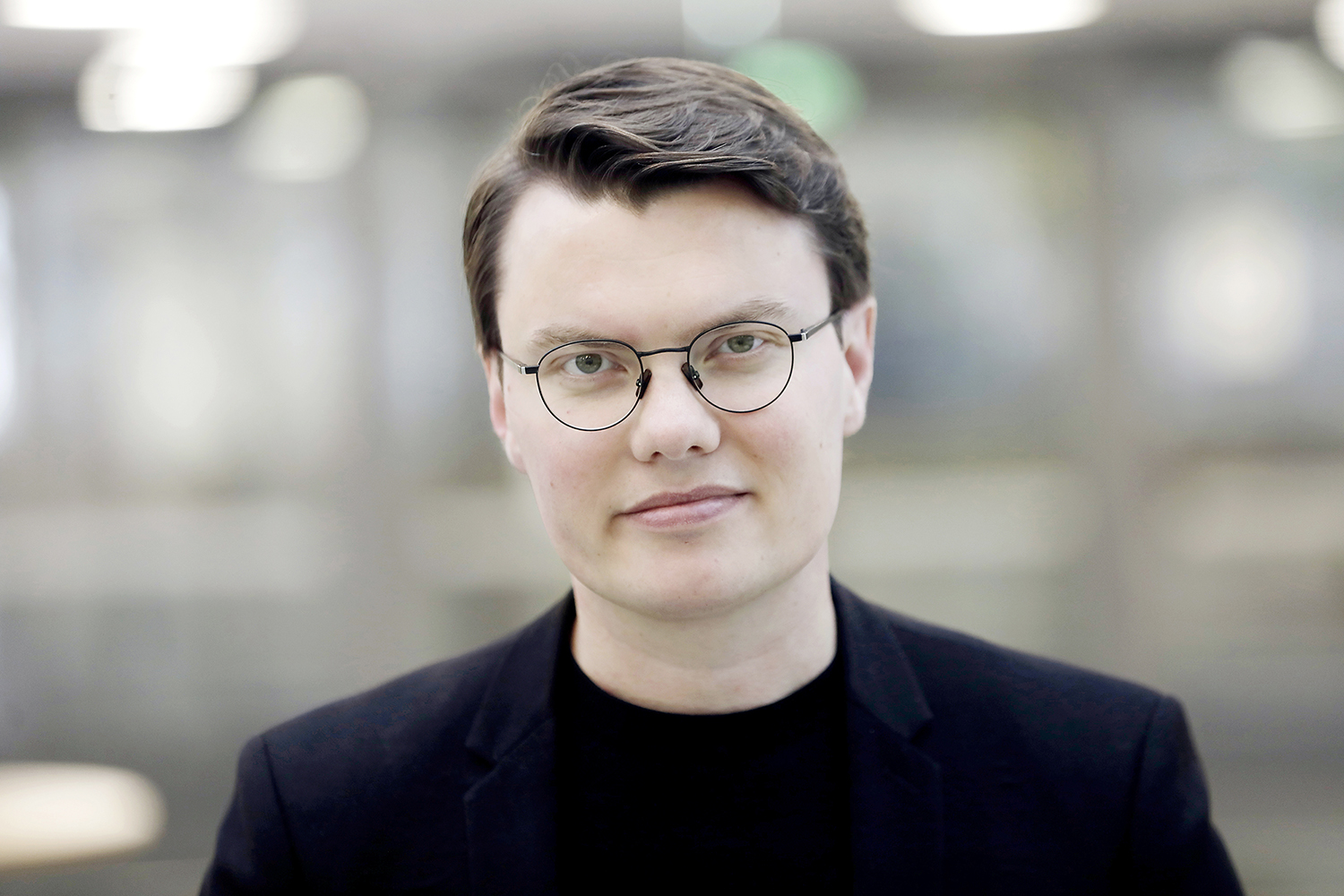‘There are a lot of immigrants with excellent skills and international vision and competence, but they are having difficulties finding a job. Finnish companies should wake up to the fact that they are missing out on great resources.’
This is how the situation was described by one of the individuals interviewed as part of the HIWE research project. The research project of the University of Eastern Finland and the University of Turku examined the experiences and insights of highly skilled internationals concerning the Finnish labour market and entrepreneurship and those factors that attract individuals to or push them away from Finland.
The interviews revealed their strong desire to participate in the development of job seeking and entrepreneurship-related services, as well as the desire for more inclusive workplaces in which they would feel a sense of community. Some experienced a poor general sense of inclusion and belonging to Finnish society.
What are the obstacles to employment?
Discrimination based on ethnic background, the reluctance of employers to recognise skills acquired abroad and the requirement for Finnish language skills. These were the characteristics that highly skilled internationals mentioned when asked what the Finnish labour market looks like from their point of view.
The rigidity of the Finnish labour market, such as the strict division between employee and entrepreneur, also emerged.
‘One issue that cropped up a lot was that an individual must have a certain work permit to come to Finland to work, for example, as a specialist, but what if, alongside that, the individual also wanted to start up their own company?’ asked Satu Aaltonen, a researcher at the University of Turku who worked on the project.
Satu Aaltonen, a researcher at the University of Turku who worked on the project, describes the rigidity of the Finnish labour market : an individual must have a certain work permit to come to Finland to work, for example, as a specialist, but what if, alongside that, the individual also wanted to start up their own company?
The interviewees felt that the emphasis on the hidden labour market in Finland was so strong that it made their ability to find employment very difficult. Highly skilled internationals were often behind their Finnish colleagues in terms of building their networks, and did not, as a result, hear about hidden jobs. The creation of networks could be boosted by support from educational institutions by providing, for example, networking opportunities with employers, support for language studies, internships and co-operation with companies as a means of completing thesis work.
‘We also found that employers compare highly skilled internationals to Finnish employees. It is not enough for a highly skilled international to have the necessary competence; they are also expected to have some kind of Finnish connection, whether it be Finnish language, studies in Finland or networks in Finland’, says Tommi Pukkinen, a researcher from the University of Turku.
A strong message emerged from employers, highly skilled internationals and service providers that SMEs should be instilled with more courage to recruit highly skilled internationals. One method to encourage that would be by sharing good examples of recruitment processes from other companies as a type of peer mentoring.
‘The threshold for hiring the first highly skilled international is more of a mental issue’, Pukkinen surmises.
Many of the interviewees wanted to move to the Helsinki metropolitan area, where more services are available in English. There was a need for effective language practices in the workplace in order to prevent those with a beginner’s level of Finnish from being excluded from the community.
Finland’s weaknesses included the winter, darkness and the cold.
What do you value in Finland? What’s keeping you here?
The interviewees particularly expressed an appreciation for the balance between work and leisure time in Finland. There was time, outside of work, for family or hobbies. Nature, silence, tranquillity and security were also mentioned, as were high-quality public services such as schools, health care and transport.
Some found it welcome that Finns are not overly social and positive. This characteristic was described as an enjoyable mental landscape, but this viewpoint was not shared by the majority. Many interviewees mentioned being downright lonely. Building social relationships and making friends outside of work was seen to be challenging. Many felt that they had dropped into a social vacuum. The COVID-19 restrictions and increase in remote work further exacerbated the sense of loneliness.
‘Workplaces could serve as bridge builders instead of reinforcing the idea that co-workers are just co-workers. There are large companies around the world that support their employees to engage in hobbies or sports together outside of the workplace’, says Pukkinen.
‘The public sector could demonstrate leadership and set an example by hiring highly skilled internationals. Public subsidies, such as funding provided by Business Finland, could be tied to companies’ efforts to operate and recruit in an open and tolerant manner’, suggests Researcher Tommi Pukkinen.
‘It has been particularly hard on those who have no family here or whose tight group of friends has disbanded, for example, once their university Master’s programme has ended’, Aaltonen adds.
Positive experiences with employment services came in situations where an individual employee had gone above and beyond what was required by their position.
‘For example, coming along to the bank to help open an account and really focusing on the person’s situation rather than just bouncing them around from one desk to the other’, Aaltonen describes.
‘Not everyone is here to stay either. Some are cosmopolitans for whom Finland is just one stage in their career path. For them, as well, it would be good to consider what Finland needs to do to be a meaningful stop. The demand for Finnish language skills is not realistic if someone is only going to be here for a few years’, says Pukkinen.
What could be done better?
On the basis of the HIWE study, Tommi Pukkinen would make three proposals for change. First of all, Finland needs a major change in its mindset. The big policies need to be discussed by policy makers.
‘A vision should be drawn up that recognises the societal importance of highly skilled internationals.’ Does Finland want to be an inclusive society?
According to Pukkinen, the starting point for the service system would be to focus on encouragement rather than restrictions. The long-term development of the current service system is difficult when individual governments endeavour to pursue their own interests over the course of their term.
‘Co-operation is essential for development. Within the public sector, silos should be dismantled between different ministries and administrative branches. Much more co-operation is needed between the public sector, the third sector, highly skilled internationals and employers. Highly skilled internationals should be consulted at all stages of service system development. People who have always lived in Finland cannot understand how it feels to be new here or discern the flaws and problems’, says Pukkinen.
As the second proposal of change, Pukkinen mentions a major structural change.
‘A lot of project-based plasters are applied when continuity and long-term funding are needed. Centralised service points in large cities have met with good results. The service system should take seriously its responsibility for solving problems together with highly skilled internationals’, says Pukkinen.
Services are currently fragmented and their level of accessibility is not ideal.
‘It is difficult to communicate with highly skilled internationals in a centralised manner. There may be, for example, legal barriers concerning data protection’, he explains.
Text by Iida Ylinen
Photos: Lehtikuva (illustration), Studio Liikkuva (Satu Aaltonen and Tommi Pukkinen), Liisa Takala (Miika Sahamies)
Paradigm change – highly skilled internationals were asked to clarify the obstacles to employment
The HIWE research project produced new information on the experiences of highly skilled internationals regarding what it is like to live, work and run a business in Finland. The project deepens the understanding of factors that are important for highly skilled internationals when they consider moving to Finland and staying here or moving away. The aim was to find ways to make the voice of international experts better heard within the social debate and decision-making concerning them. The two-year project was carried out in co-operation between the University of Eastern Finland and the University of Turku, and was funded by Business Finland (Innovation and Growth call).
As part of the research project, 61 highly skilled internationals were interviewed in the autumn of 2022. A highly skilled international was defined on the basis of a university degree, work experience or entrepreneurial business activities. The group was diverse and was described as, for example, immigrants, cosmopolitans or those returning from a foreign assignment. The interviewees were sought through an open search, for example, in the LinkedIn working life network and partly as a snowball sample, in which case one interviewee recommended the next interviewee from their own circle of acquaintances.
In addition, more than 80 people participated in brainstorming recommended actions through joint development workshops and expert interviews. In addition to highly skilled internationals, representatives from different levels of the Finnish service system, such as ministries, municipalities, universities and organisations, were involved. Akava was involved in the project steering group. The workshops tested different ways to develop services and create common understanding across sectoral boundaries with the involvement of highly skilled internationals.
HIWE is an abbreviation of the title High-skilled internationals: bottom-up insights into policy innovation for work and entrepreneurship in Finland.
The research project drew up policy recommendations:


